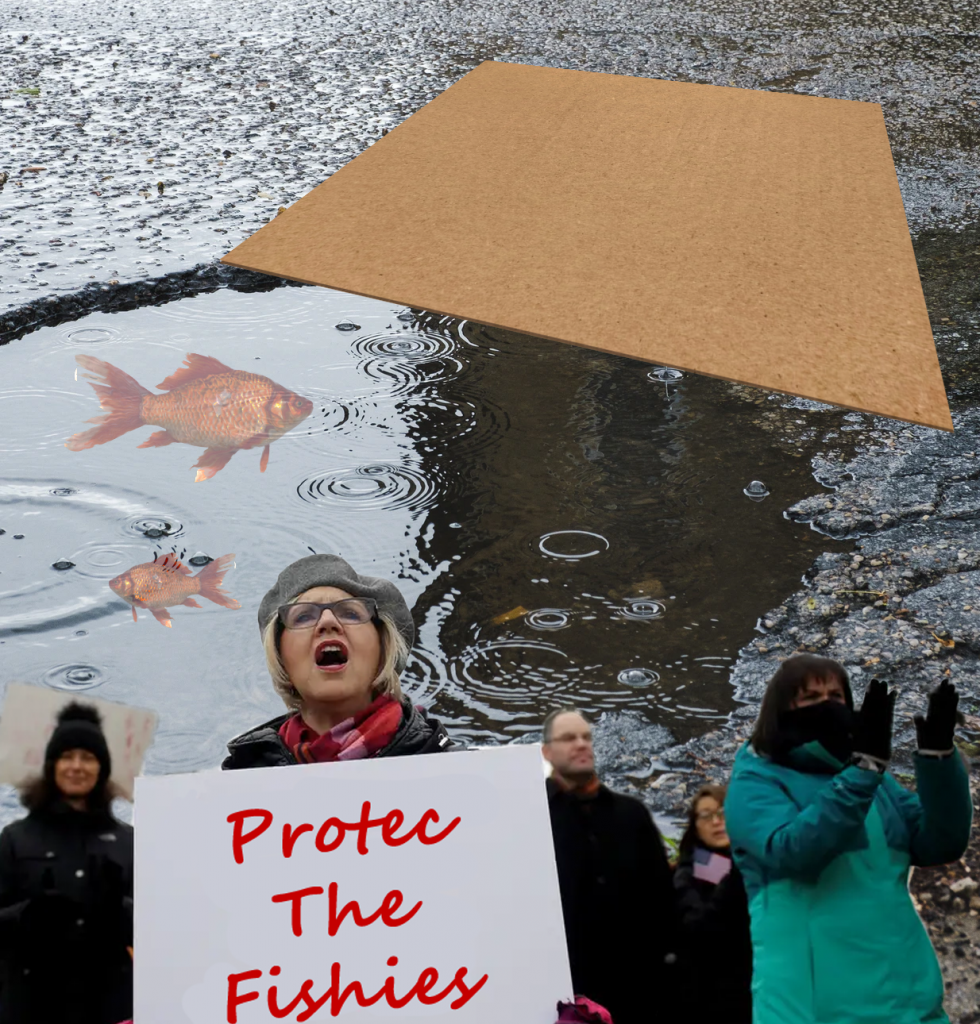
The following article is a part of our April Fool’s edition, The Scoop. The content of these stories is entirely fabricated and not to be taken seriously.
Potholes: everyone in the Peoria area has experienced the terrifying moment where you hit one head-on, causing you to vehemently apologize to your poor car. Fortunately, the city of Peoria employees began working on them this past week; however, things didn’t go as smoothly as they planned.
When employees arrived on the scene at University Street on Monday, they were met with dozens of protestors.
The controversy about paving over these holes was caused because of the mini-ecosystems discovered to be thriving in these holes. With the spring showers Peoria has seen recently, these potholes have become shallow ponds, teeming with biodiversity.
“We need to think about the complex ecosystems within these potholes,” said Brea Hugger, junior environmental biology major and president of the environmental club. “Some of these animals may even be endangered species.”
The city of Peoria recognizes the delicate nature of the situation and has begun to brainstorm options.
“We’ve thought about relocating the fish and plankton to new potholes on Main Street, but we’ll hit the same issue when we go to repair those,” said Peoria Mayor James Stardis. “We’re stuck.”
Citizens are divided on the issue, with some advocating for the safe removal of the animals, and others complaining about the roads, and others still wanting to preserve the miniature ecosystems.
“Ultimately, I blame the city,” said pedestrian Randy Sitazen. “They should’ve repaired these years ago before these ponds were formed.”
For now, the holes have been covered with cardboard, awaiting a verdict.
“We just want the animals to be protected,” Hugger said. “They deserve at least that much.”




